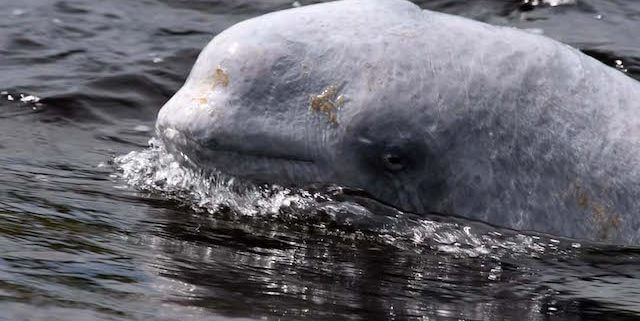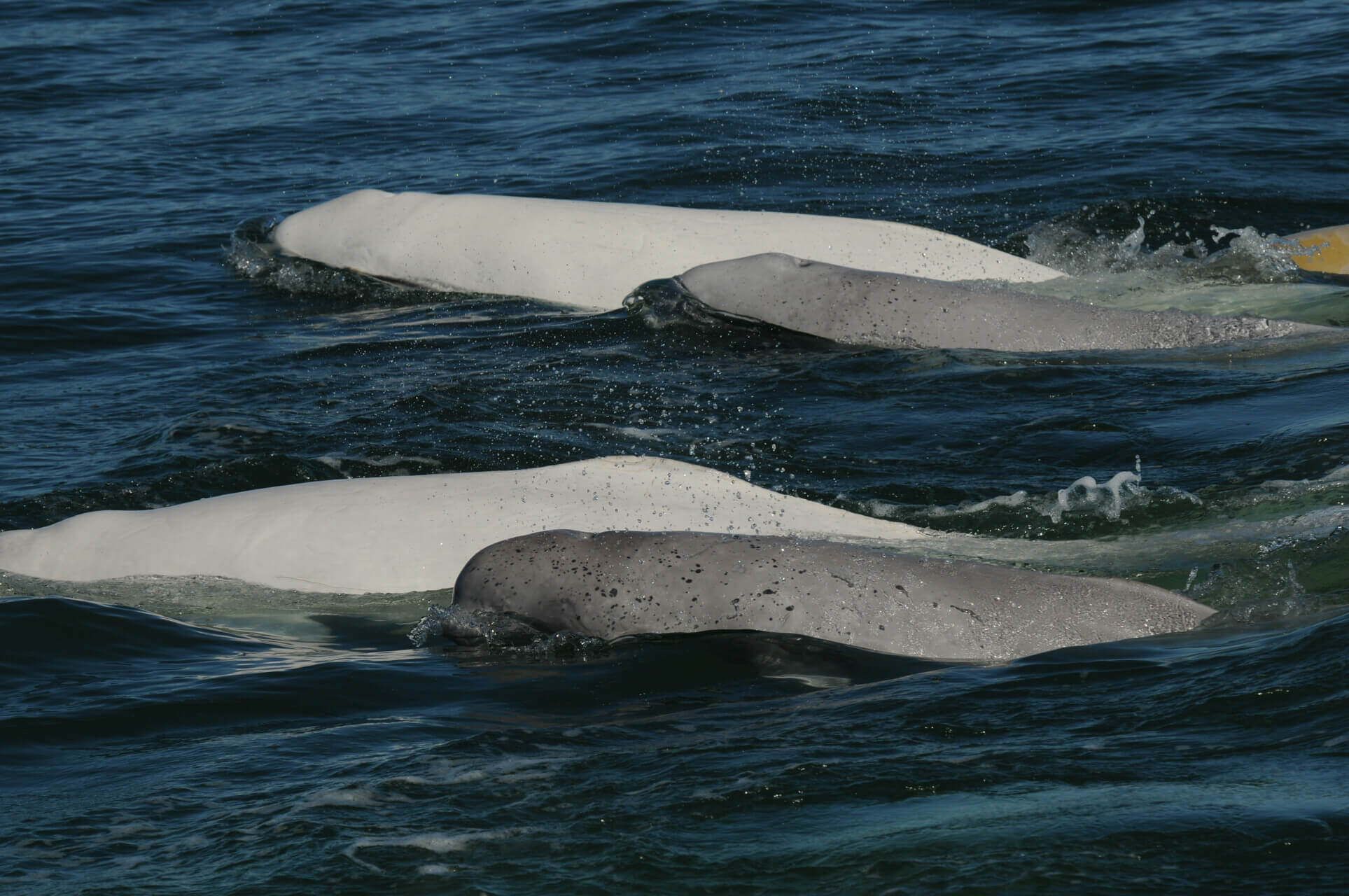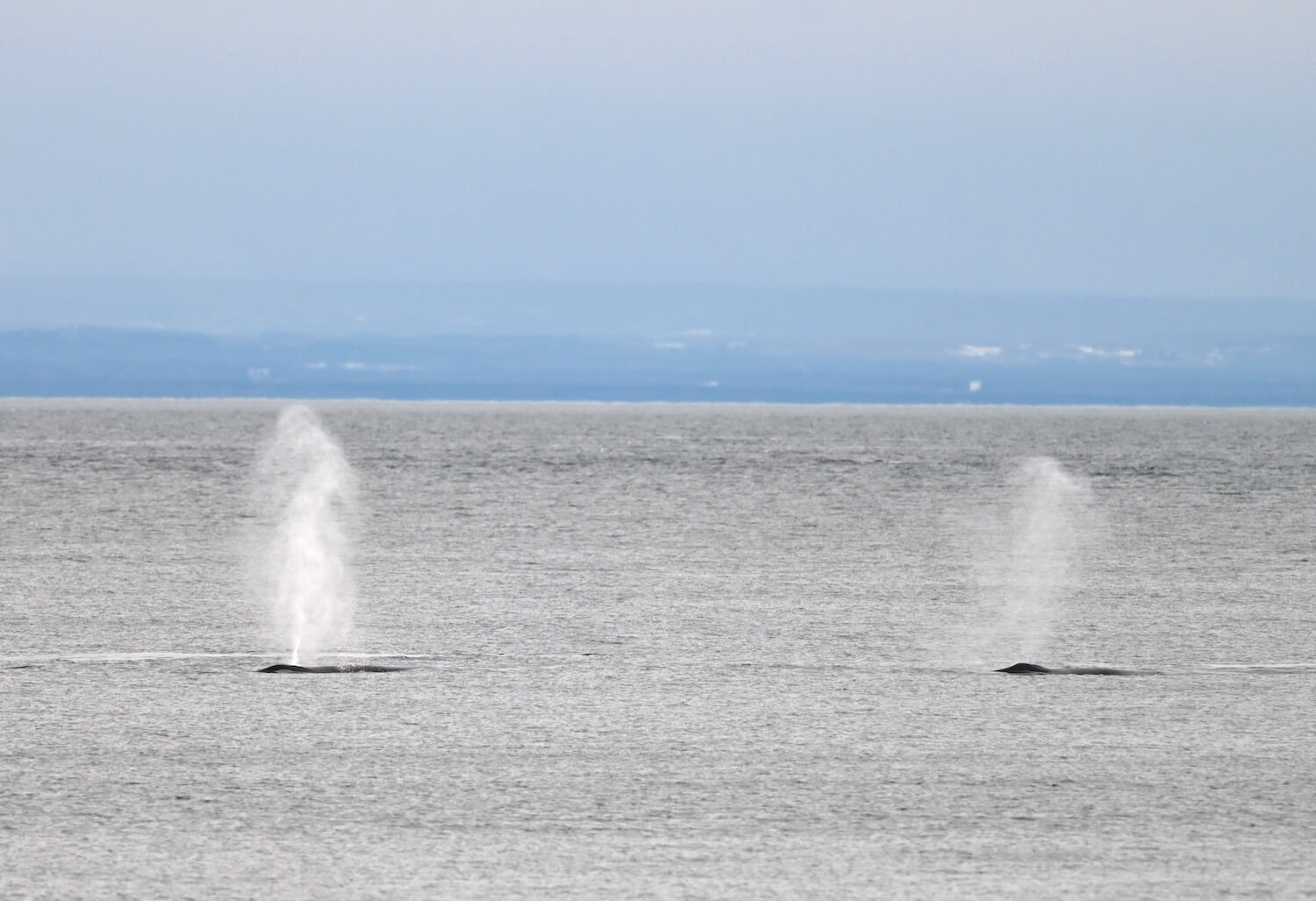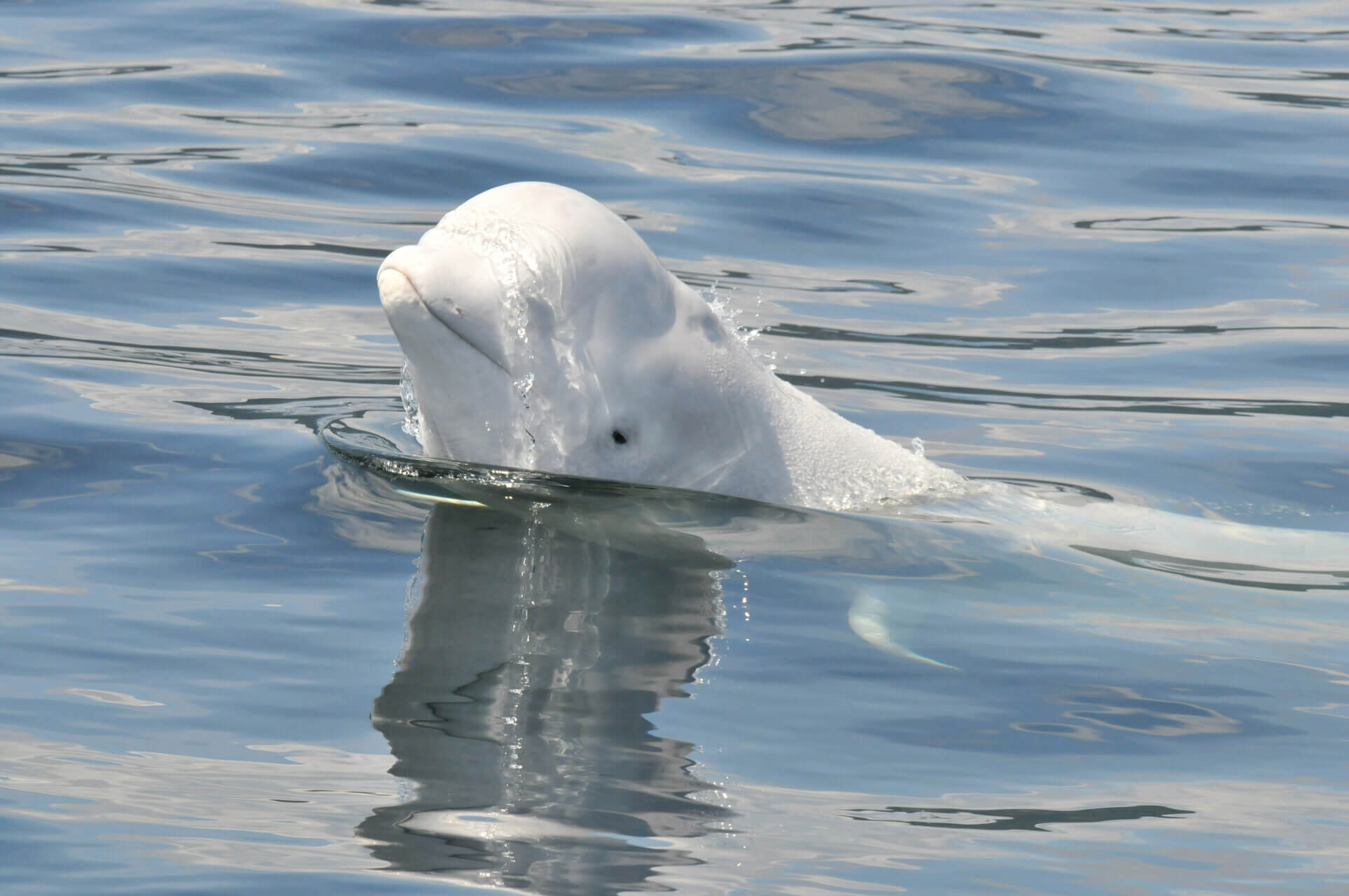Cetaceans are marine mammals, which are adapted to living in the salt waters of the various seas and oceans of the world. They metabolize the proteins and fat reserves of their prey into water, their kidneys have the ability to extract salt, and their urine is more concentrated than sea water, allowing them to meet their water needs.
Whales migrate based on the seasons and their needs. To access their food, they may find themselves in brackish water (water with a salt content lower than that of sea water), or even in freshwater. Some species adapt to changes in water salinity. For example, bottlenose dolphins can vary the concentration of their urine when they move from salt water, their natural habitat, to freshwater.
All populations of belugas use estuaries during the summer. An estuary is a transition zone between freshwater and salt water, such as the St. Lawrence River, which connects the Atlantic Ocean and the Great Lakes. Estuary waters are shallower and warmer, making them more suitable for feeding and raising young. The change in salinity is believed to be an advantage for this species.
On the other hand, a whale that stays in freshwater for an extended period might have skin problems and develop infections or ulcers.
Studies conducted on bottlenose dolphins explain the potential reasons for the skin diseases observed in this species. The two factors suspected to be at play are chemical pollutants and salinity levels. Researchers have documented that bottlenose dolphins living in fresher water, for example in the Indian River Lagoon in Florida, develop more skin diseases.
Some species of cetaceans, such as the Amazon river dolphin, live in freshwater their entire lives. This species has special adaptations: a more developed echolocation system and a greater number of vibrissae (whiskers) for navigation. Evolution is in constant flux. Who knows, perhaps one day some bottlenose dolphins will live completely in fresh water.
To learn more:
- On Whales Online: freshwater cetaceans
- A study on bottlenose dolphins
- Skin diseases developed in bottlenose dolphins





